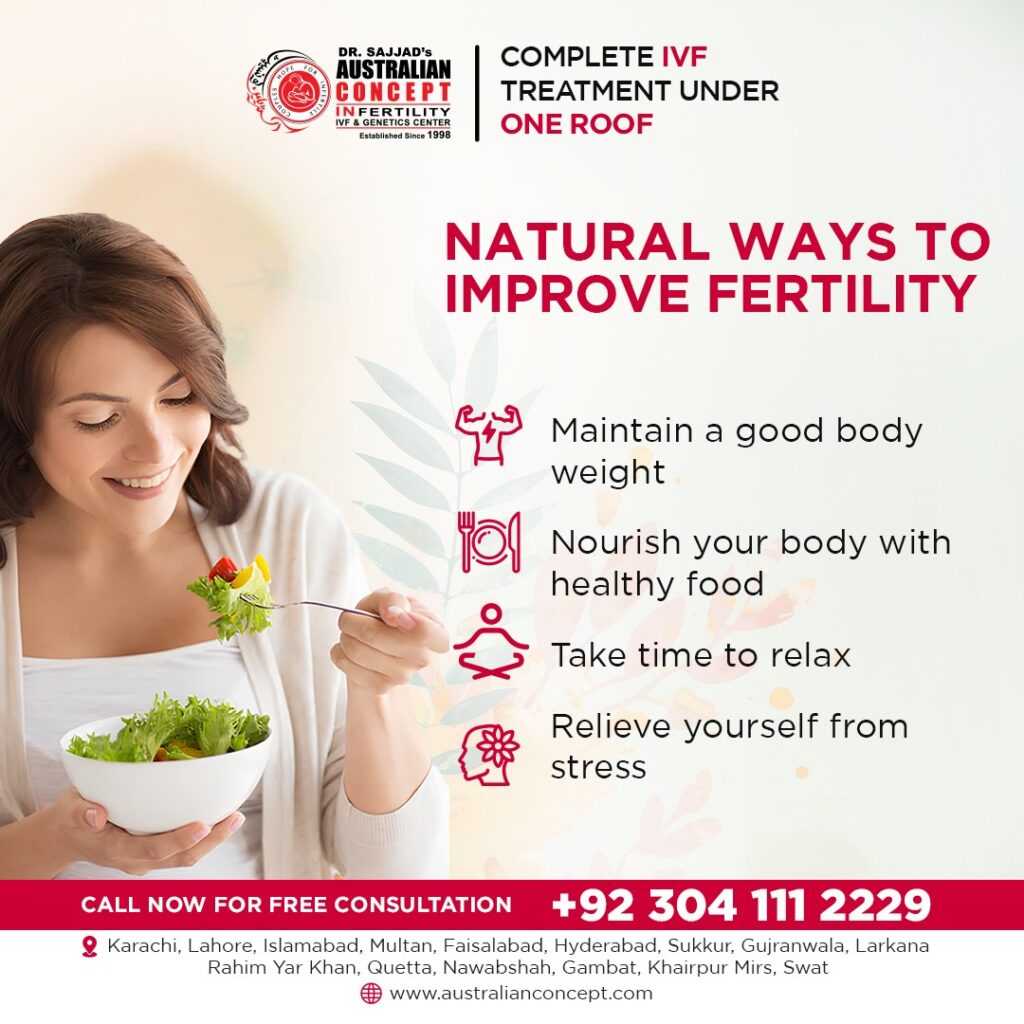When it comes to fertility, many factors contribute to a woman’s ability to conceive. While genetics, age, and overall health are often discussed, diet and nutrition also play a critical role in boosting fertility. Proper nutrition can help optimize reproductive health, increase the chances of successful treatments like IUI treatment, and support a balanced hormonal environment.
The Link Between Diet and Fertility
Nutrition is fundamental to overall health, and it directly impacts reproductive function. A balanced diet rich in vitamins, minerals, and healthy fats supports hormonal regulation and promotes the health of reproductive organs. For women, specific nutrients can influence the quality of eggs, the regularity of menstrual cycles, and the chances of a successful pregnancy.
Several factors contribute to infertility, including ovulatory disorders, hormonal imbalances, and the condition of the uterus. Proper nutrition can help regulate these conditions, potentially improving fertility outcomes.
Key Nutrients That Enhance Fertility
Certain nutrients are particularly beneficial for women’s fertility. Incorporating these into your diet can help improve the chances of conception:
- Folic Acid: Known for its role in preventing neural tube defects, folic acid is also essential for healthy egg development and hormone regulation. Leafy greens, citrus fruits, beans, and fortified grains are excellent sources of folic acid.
- Omega-3 Fatty Acids: These healthy fats promote hormonal balance and improve blood flow to the reproductive organs. Sources of omega-3 fatty acids include fatty fish (salmon, sardines), flaxseeds, and walnuts.
- Vitamin D: Adequate levels of vitamin D are crucial for reproductive health, as it helps regulate hormones involved in ovulation. Vitamin D can be obtained from exposure to sunlight, fortified foods, and fatty fish like tuna.
- Iron: Low iron levels have been linked to fertility issues. Iron-rich foods like spinach, beans, and lean meats are vital in promoting ovulation and improving egg quality.
- Antioxidants: Vitamins like C and E, as well as selenium and zinc, are antioxidants that help protect eggs from oxidative damage. These vitamins can be found in fruits like berries, nuts, and seeds.

Avoiding Harmful Foods
While certain nutrients help fertility, others may harm reproductive health. It’s important to avoid foods that can disrupt hormonal balance or negatively impact fertility:
- Trans Fats: Found in processed foods, trans fats can affect insulin resistance and hormonal balance, which may reduce fertility.
- Caffeine and Alcohol: Excessive caffeine intake can interfere with ovulation, while high levels of alcohol consumption are linked to reduced fertility. It’s best to limit both.
- Processed Foods: These are often high in unhealthy fats, sugars, and additives that can negatively affect fertility. A diet rich in whole foods is a better choice for supporting reproductive health.
Diet and Fertility Treatments
When undergoing fertility treatments like IUI treatment in Lahore, nutrition plays an essential role in optimizing your body for conception. A fertility clinic may offer advice on dietary adjustments to complement medical treatments. Healthy eating can increase the chances of a successful outcome by improving egg quality, sperm health, and overall reproductive function.
A woman’s body requires proper nutrients to support the hormonal shifts that occur during fertility treatments. Ensuring you get a balanced diet full of antioxidants, healthy fats, and vitamins before and during treatment can help improve your chances of success.
Maintaining a Healthy Weight
Being either underweight or overweight can impact fertility. A healthy body weight is essential for optimal hormone regulation. Overweight women may experience insulin resistance, which can disrupt ovulation. On the other hand, being underweight can affect the production of reproductive hormones, making it harder to conceive.
Maintaining a healthy weight can help balance hormones and improve fertility. A well-rounded diet rich in whole foods and regular exercise can support weight management and enhance overall reproductive health.
Finding Support from a Fertility Center
For women struggling with infertility, seeking advice from a professional can provide guidance on improving fertility through nutrition. An infertility center in Lahore can offer personalized nutrition advice tailored to individual needs.
Many clinics provide counseling on lifestyle changes, including dietary adjustments, to complement fertility treatments. A healthy lifestyle coupled with medical treatment can help optimize your chances of conception and ensure that your body is in the best condition to support a pregnancy.
Conclusion
Nutrition plays an integral role in female fertility. A healthy, balanced diet that includes the right nutrients can improve hormonal balance, egg quality, and overall reproductive health. If you’re undergoing IUI treatment or seeking fertility assistance, it’s important to pay attention to your diet and make informed choices.
